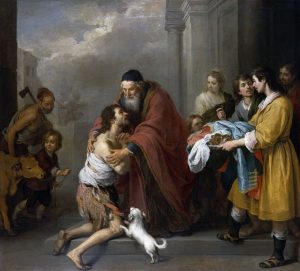 The coronavirus crisis is turning our lives upside down. The shutdown’s economic impact will be extremely severe. However, we should hope for a profound religious turnaround as we struggle to find meaning in the events around us.
The coronavirus crisis is turning our lives upside down. The shutdown’s economic impact will be extremely severe. However, we should hope for a profound religious turnaround as we struggle to find meaning in the events around us.
Much of the media seeks to reduce the crisis to natural causes. Its apocalyptic character, though, thrusts us into this religious perspective. This disaster involves something far bigger than ourselves.
For Ten Commandment South Africans (and there are many), the crisis cannot help but turn our hearts and minds to God. Its severity will compel us to engage in soul-searching to see where we went wrong.
Changing Our Ways
Indeed, religious South Africans have long grieved for a nation that has abandoned God and His law. We have long lamented the disorder of our customs, sexual mores and culture. We have watched the painful disintegration of our families, communities and churches.
This public health crisis deepens our grief as we see a society falling apart. Many sense that we have no choice but to call upon God.
However, this appeal can only be effective if we dare to embrace three politically incorrect themes that should be part of the national debate in the coming months.
Recognition of Our Sins
The first is a recognition of our sins. Sin is an unwelcome word today. It speaks much of individual moral responsibility and denies the false notion of absolute freedom.
We who grieve for the nation are the first to admit our sins. We also see the nation’s sins. The sins of sexual promiscuity, drug abuse and other evils that are tearing our country apart weigh heavily on our souls.
While non-believers might scoff at the thought of sin separating us from God, they should at least acknowledge that it splits us apart. Having been polarised by sin, our culture ignores God. It glorifies all that is sensual, material and self-gratifying.
Our disunity in this crisis lays bare the iniquities dividing us. By recognising our sins, we can approach God with humble and contrite hearts. It is a starting point for changing our ways.
Asking for Pardon
Sin destroys our ability to work together for the common good. To harmonise society, we need another unwelcome word: pardon.
Modernity hates the idea of forgiveness because the individual supposedly reigns supreme and recognises no higher power. Pardon reminds us of an offended God. It heals the abuse of freedom and highlights the need for self-restraint.
This gravity of the crisis will compel us to ask for pardon because our sins burden our consciences. When we beg pardon, we acknowledge the consequences of our sins towards ourselves, [towards] society and [most importantly, towards] God. Asking forgiveness brings peace to our troubled land.
Amendment of Life
A final theme is amendment of life. The coming intense sufferings will force us to see that the root of the problem lies in our bad choices.
The logical consequence is to look for concrete ways to reject the evils that dominate our culture and strive to make society pleasing to God. This realignment of values should help us desire that any return to “normal” be not a return to sinful ways.
With God’s grace, a much-needed regeneration of the nation can take place.
Prodigal Son
Will such a reawakening happen? Sin-hardened souls seem closed. Pleasures reign supreme. However, the crucible of great suffering can change hearts and minds in dramatic ways.
Indeed, the Prodigal Son returned to the Father’s house in a moment of famine and economic ruin. He realised the folly of his ways, asked forgiveness and amended his life. If the themes of sin, pardon and amendment enter into the national debate, it could trigger the return to God and order that South Africa needs.
– By John Horvat II
